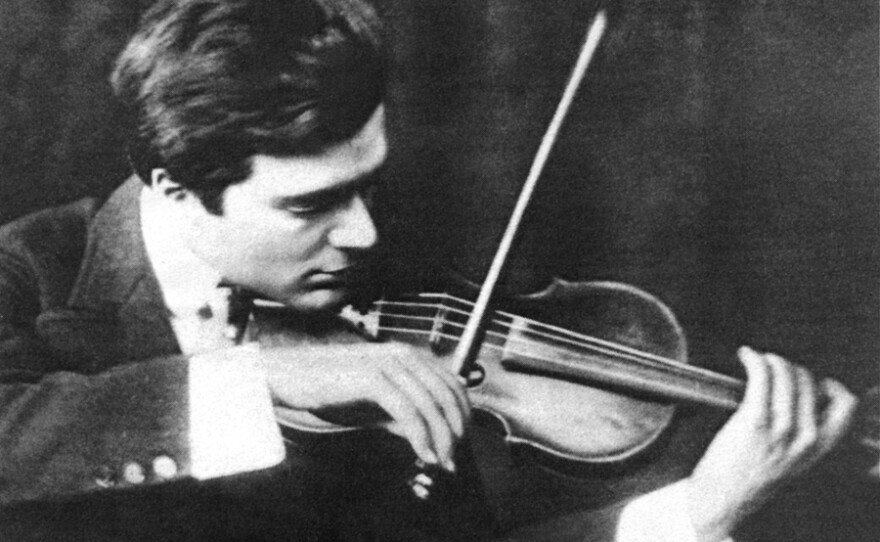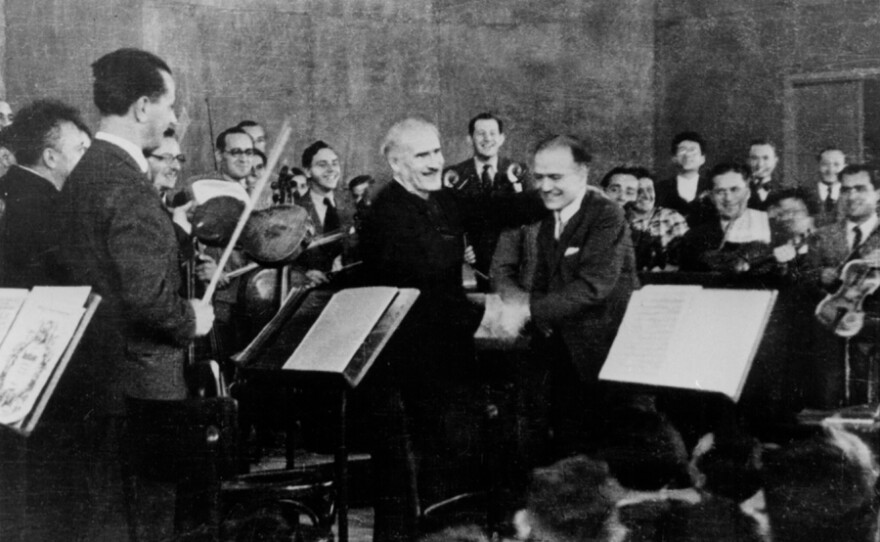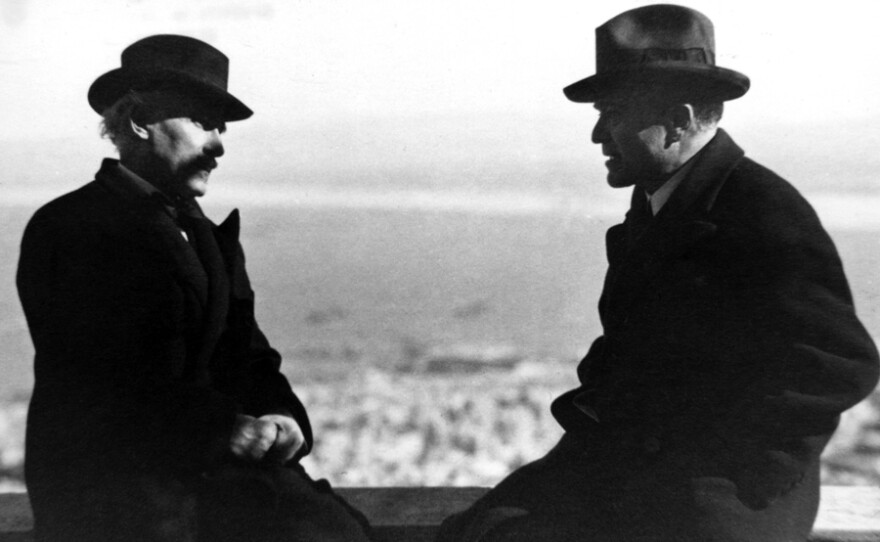On the brink of World War II and the rise of Nazi-occupation, one man’s remarkable four-year odyssey helped rescue Europe’s premiere Jewish musicians and their families from persecution, while preserving the musical heritage of Europe.



Photo Gallery
Violinist Bronislaw Huberman performed for nearly his entire life. These Bronislaw Huberman photos include archival photographs from Palestine Symphony Orchestra performances as well as re-enactment stills from the film, "Orchestra Of Exiles."
Timeline
Pivotal events in Huberman’s life as a musician and founder of the Palestine Symphony Orchestra are shared in this timeline. The chronicle of music and politics also notes key events in relevant world history, such as the German government’s actions against Jews leading up to the Holocaust, and the political conditions in Palestine that delayed and even threatened the founding of the new orchestra there in 1936.
Map
The Palestine Symphony Orchestra was made up of Jewish musicians from the top ranks of orchestra and chamber music groups across Europe. Explore the points on this map to see names of members and orchestras they played for prior to 1936.
"One has to build a fist against anti-Semitism—a first class orchestra will be this fist." — Bronislaw Huberman, Palestine Symphony Orchestra founder
"Orchestra Of Exiles," a 90-minute documentary film by Academy Award nominated Josh Aronson, tells the dramatic story of celebrated Polish violinist Bronislaw Huberman (1882-1947) who — with courage, resourcefulness, and an entourage of allies including Arturo Toscanini and Albert Einstein — bravely stood up to racial intolerance, ultimately saving almost 1,000 Jews from 1933–1936 while forming the Palestine Symphony Orchestra.
Receiving high praise after playing in front of Johannes Brahams at age 12, Huberman quickly rose to fame as a young violin prodigy. Pressured by his father, the teenager supported his family by touring Europe and playing concerts for society’s elite. After the death of his father and desiring the broader education that his father had denied him, Huberman canceled all his scheduled concerts and enrolled at the Sorbonne, sacrificing his own professional and financial security.
It was studying there, as well as witnessing the devastion of World War I, that triggered an intense interest in humanity and politics. After university, Huberman regained his place among the elite musicians of the world but with a new perspective, now astutely aware of the realities of world politics.
In the early 1930s, as part of his anti-Semitic agenda, Adolph Hitler began forcing Jewish musicians out of the great German orchestras. Sensing the ominous danger looming and seeing an opportunity, Huberman set out to create an orchestra in Palestine made of these top-tier Jewish exiles. He aspired to form a world-class orchestra that would build the prestige of Jews everywhere while serving as a powerful tool to protest the Nazi regime on a global stage.
“I had to descend into the furthest depths of my soul to find the hidden link between my impulse towards art and my impulse towards politics, and then I made a huge discovery. The true artist does not create art as an end in itself. He creates art for human beings. Humanity is the goal,” Huberman noted about his political consciousness in a letter.
Over a course of three years, Huberman conducted auditions with the top Jewish musicians in Austria, Germany, Hungary, Netherlands, Palestine, and Poland. He lobbied for hundreds of certificates of entry into Palestine and turned his own concerts into fundraisers to raise the substantial money needed for the creation of the orchestra.
By December 1936, Huberman had safely brought hundreds of Jews to Palestine — including 56 musicians to play in the inaugural concerts conducted by the world-renowned Arturo Toscanini, who agreed to conduct as a public protest of the Nazi regime.
The rehearsals and inaugural concerts were seen by 15,000 people and were heard on radio around the world, changing the landscape of cultural history. In 1948, with 44 of its founding members, the Palestine Symphony Orchestra was renamed the Israel Philharmonic Orchestra by the first Prime Minister of Israel David Ben Gurion, and still carries on today under the artistic direction of Zubin Mehta as a leading force in the world of music.
"Orchestra Of Exiles" features interviews with acclaimed musicians Joshua Bell, Leon Botstein, Mehta, Itzhak Perlman, Pinchas Zuckerman, and others, and draws from archival footage, photographs, and re-creations shot in Germany, New York, Poland, and Israel.
"Orchestra Of Exiles" is an Aronson Film Associates Production in association with THIRTEEN for WNET, one of America’s most prolific and respected public media providers. "Orchestra of Exiles" is produced, written and directed by Josh Aronson. Julie Anderson is executive producer for THIRTEEN.
This film is available for online viewing through May 14, 2013.
"Orchestra Of Exiles" is on Facebook.





